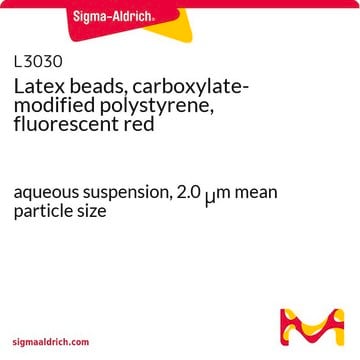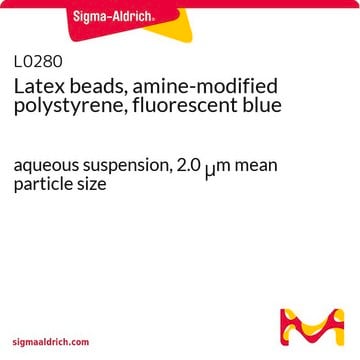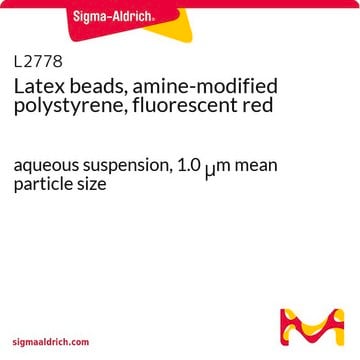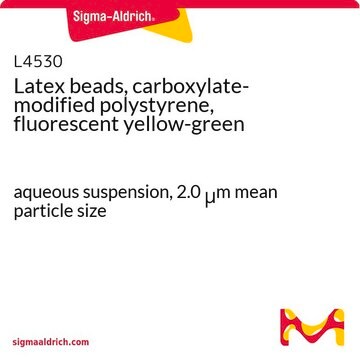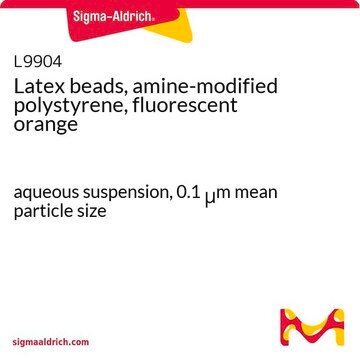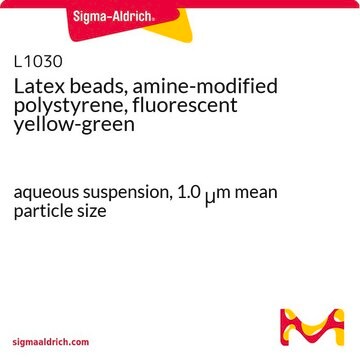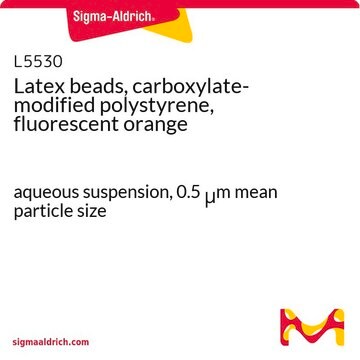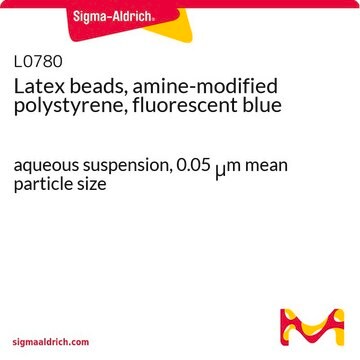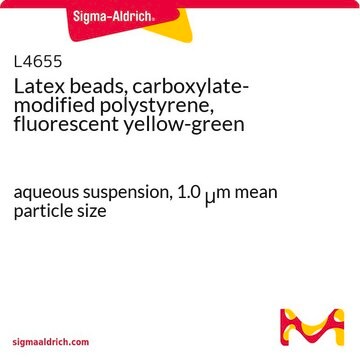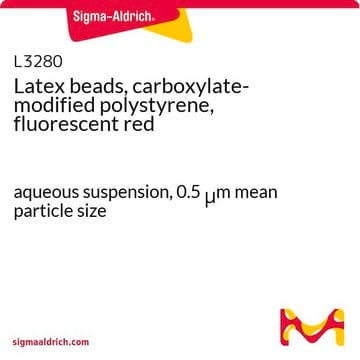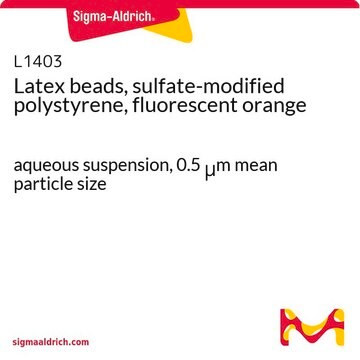L9529
Latex beads, amine-modified polystyrene, fluorescent orange
aqueous suspension, 2.0 μm mean particle size
Sign Into View Organizational & Contract Pricing
All Photos(1)
About This Item
Recommended Products
form
aqueous suspension
composition
Solids, 2.4-2.6%
mean particle size
2.0 μm
fluorescence
λex ~520 nm; λem ~540 nm
Looking for similar products? Visit Product Comparison Guide
Application
Latex beads, amine-modified polystyrene, fluorescent orange has been used in functionalized microbeads for rapid antimicrobial susceptibility testing (AST) evaluation. It has also been used in microparticle functionalization for the detection of live bacteria.
Biochem/physiol Actions
Amine-modified polystyrene latex beads have been used to develop an electrochemical nitrite nanosensor as well as to validate a pharyngeal aspiration technique for exposing the mouse lung to respirable particles.
Storage Class Code
10 - Combustible liquids
WGK
WGK 3
Flash Point(F)
Not applicable
Flash Point(C)
Not applicable
Certificates of Analysis (COA)
Search for Certificates of Analysis (COA) by entering the products Lot/Batch Number. Lot and Batch Numbers can be found on a product’s label following the words ‘Lot’ or ‘Batch’.
Already Own This Product?
Find documentation for the products that you have recently purchased in the Document Library.
Customers Also Viewed
Development of a self-driving bioassay based on diffusion for simple detection of microorganisms
Wang J C, et al.
Sensors and Actuators B, Chemical, 278, 140-146 (2019)
J Geys et al.
Toxicology letters, 160(3), 218-226 (2005-09-03)
Recent studies indicate that inhaled ultrafine particles can pass into the circulation. To study this translocation in an in vitro model three types of pulmonary epithelial cells were examined. The integrity of the cell monolayer was verified by measuring the
Ninad Mehendale et al.
Biomedical microdevices, 20(1), 6-6 (2017-12-01)
Pillar-based microfluidic sorting devices are preferred for isolation of rare cells due to their simple designs and passive operation. Dead-end pillar filters can efficiently capture large rare cells, such as, circulating tumor cells (CTCs), nucleated red blood cells (NRBCs), CD4
Jhih-Cheng Wang et al.
ACS sensors, 3(10), 2182-2190 (2018-09-18)
Rapid detection of bacteria and their susceptibility to specific antibiotics plays a vital role in microbial infection treatments. Antimicrobial susceptibility testing (AST) is a common measure to select effective drugs. However, the conventional practices, such as broth dilution, E-test, and
Electrochemical nitrite nanosensor developed with amine- and sulphate-functionalised polystyrene latex beads self-assembled on polyaniline
Muchindu, M., et al.
Electrochimica Acta, 55, 4274-4280 (2010)
Our team of scientists has experience in all areas of research including Life Science, Material Science, Chemical Synthesis, Chromatography, Analytical and many others.
Contact Technical Service